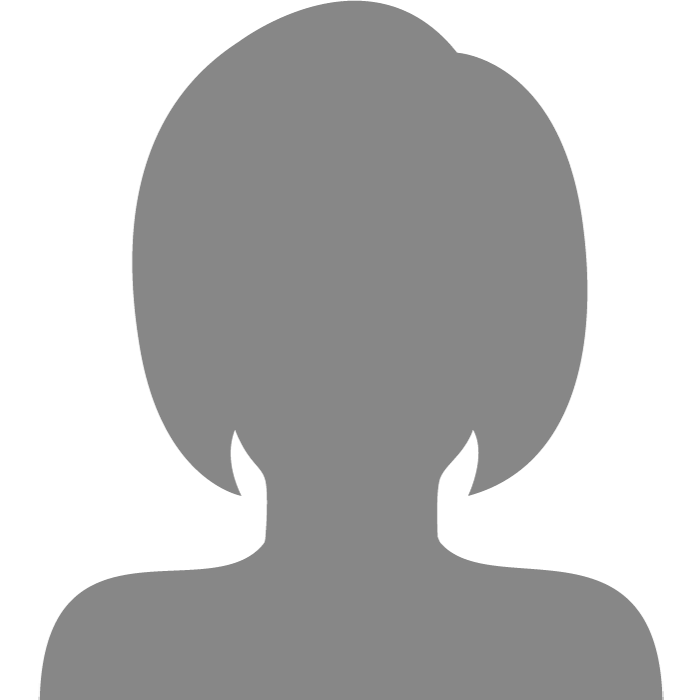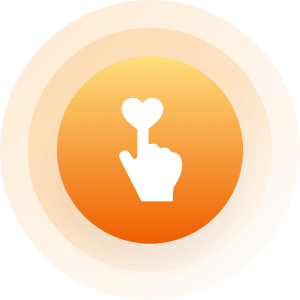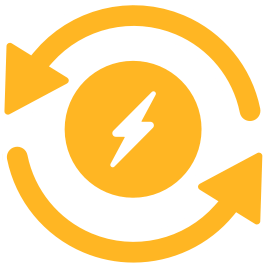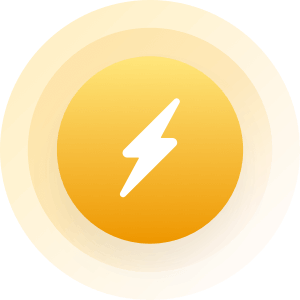| Topic: The nature of reality | |
|---|---|
|
So, it seems we've come to a point where the agreement is there's no way to really know. I still purpose the issue is to find out what is real in the first If "there's no way to really know" then how do you "find out"? place. My whole point all along has been that (just as you said) you can't "find out" so you must decide. because we say it is whether it is or not  
|
|
|
|
|
|
I think there are multiple realities because everyone has their own meaning of things. We all have a dictionary meaning of something and we also have an emotional one,which is unique to all of us.
Weatherguy |
|
|
|
|
|
reality is all perception and facts,if people wish to distort and manipulate them well so be it.
|
|
|
|
|
|
Edited by
Bushidobillyclub
on
Sat 11/15/08 07:16 PM
|
|
|
I think there is ways of knowing. I think science does prove things. Its true we only have this existence, but from the moment we are born we are refining our understanding of our environment, we are imperfect computers, but we make ones that while simple are excellent at capturing data, so we have made great progress by using computers as our never forgetting data dump, and our super calculators, and we use our ration to sift through looking for patterns that will achieve a sharper and sharper definition of reality. It all comes down to thresholds, what amount of error can you live with? Even if you discovered that your mind was perfect, how would you know? Retest your entire life, then you die, and the next generation runs over your data with a fine tooth comb, no errors, the next generation runs over the data again, no errors, and the next and the next. What if thousands of years, hundreds of thousands of years roll by, and no errors. The last person runs the last check before the last star goes kaput, and this one mind was never wrong . . . . Seems to me that would be right. I say we are right until the data says we are not. And if the data says I missed a decimal place like this .00000000000001234 and it should have been .000000000000012345 , well I can live with that. Doesn't that mean that there are "gradients" of reality? Some things being more real than other things? That just means that there is no "absolute/universal reality". If we know the position of every atom in a chair we have absolute knowledge of that chair (the calculations exist, im sure no one cares about chairs however), just becuase EVERYTHING cannot be quantified yet doesn't mean everything cannot be quantified. I think perhaps we can know absolute reality, we can push up against it like an elastic barrier, if we push hard enough we can touch the concrete wall behind the elastic barrier, we can touch the base . . . for the first time in human history, we have created the senses needed to do this . . . the scanning electron microscope, Mass spectrometry, High powered lasers allow us to distort wave length and use optics to capture images of atoms. Conversely, if we have an absolute understanding of reality in regards to 98% of reality, does that mean that we are completely wrong, or that we cannot trust what we do know? We take the sum total of all reliable sources of data, and place that against the backdrop of possible reality, and we measure until we are satisfied, then we let our computers continue to measure until we don't care anymore. We have to settle for some things now and again, but far more of reality is quantifiable then is not. Jeremy |
|
|
|
|
|
So, it seems we've come to a point where the agreement is there's no way to really know. I still purpose the issue is to find out what is real in the first place. If "there's no way to really know" then how do you "find out"? My whole point all along has been that (just as you said) you can't "find out" so you must decide. I would suggest that there's no point in deciding something that you cannot be certain about. "Conversely, if we have an absolute understanding of reality in regards to 98% of reality, does that mean that we are completely wrong, or that we cannot trust what we do know? " A pig is what, 97% similar to humans genetically as I recall (yes/no/close enough?). If we could understand only 97% of a genetic code, we could read the code...and call what we are seeing a human, but we could be completely wrong and actually have a pig. If we think we understand reality, even if we had an absolute understanding of 98% of it.. we could call it one thing and still be close enough to completely wrong. |
|
|
|
|
|
I think there is ways of knowing. I think science does prove things. Its true we only have this existence, but from the moment we are born we are refining our understanding of our environment, we are imperfect computers, but we make ones that while simple are excellent at capturing data, so we have made great progress by using computers as our never forgetting data dump, and our super calculators, and we use our ration to sift through looking for patterns that will achieve a sharper and sharper definition of reality. It all comes down to thresholds, what amount of error can you live with? Even if you discovered that your mind was perfect, how would you know? Retest your entire life, then you die, and the next generation runs over your data with a fine tooth comb, no errors, the next generation runs over the data again, no errors, and the next and the next. What if thousands of years, hundreds of thousands of years roll by, and no errors. The last person runs the last check before the last star goes kaput, and this one mind was never wrong . . . . Seems to me that would be right. I say we are right until the data says we are not. And if the data says I missed a decimal place like this .00000000000001234 and it should have been .000000000000012345 , well I can live with that. Doesn't that mean that there are "gradients" of reality? Some things being more real than other things? That just means that there is no "absolute/universal reality". If we know the position of every atom in a chair we have absolute knowledge of that chair (the calculations exist, im sure no one cares about chairs however), just becuase EVERYTHING cannot be quantified yet doesn't mean everything cannot be quantified. I think perhaps we can know absolute reality, we can push up against it like an elastic barrier, if we push hard enough we can touch the concrete wall behind the elastic barrier, we can touch the base . . . for the first time in human history, we have created the senses needed to do this . . . the scanning electron microscope, Mass spectrometry, High powered lasers allow us to distort wave length and use optics to capture images of atoms. Conversely, if we have an absolute understanding of reality in regards to 98% of reality, does that mean that we are completely wrong, or that we cannot trust what we do know? We take the sum total of all reliable sources of data, and place that against the backdrop of possible reality, and we measure until we are satisfied, then we let our computers continue to measure until we don't care anymore. We have to settle for some things now and again, but far more of reality is quantifiable then is not. Jeremy Ok, you say you think perhaps we can know absolute reality. The question is (and has been throughout this thread): How? I’m not asking for examples of things that are real or not real and what their differences are. I’m asking for a workable definition that can be used to determine if something is real. I’m asking for a process or method that can be used or applied to any observation, the result of which will be a definitive yes or no answer to the question “Is it real”. |
|
|
|
|
|
So, it seems we've come to a point where the agreement is there's no way to really know. I still purpose the issue is to find out what is real in the first If "there's no way to really know" then how do you "find out"? place. My whole point all along has been that (just as you said) you can't "find out" so you must decide. because we say it is whether it is or not   wag the dog |
|
|
|
|
|
We can't define something as real. Not for an absolute. If our entire world is fictional, any definition we could come up with is incorrect.
|
|
|
|
|
|
Edited by
Bushidobillyclub
on
Mon 11/17/08 02:18 PM
|
|
|
I think there is ways of knowing. I think science does prove things. Its true we only have this existence, but from the moment we are born we are refining our understanding of our environment, we are imperfect computers, but we make ones that while simple are excellent at capturing data, so we have made great progress by using computers as our never forgetting data dump, and our super calculators, and we use our ration to sift through looking for patterns that will achieve a sharper and sharper definition of reality. It all comes down to thresholds, what amount of error can you live with? Even if you discovered that your mind was perfect, how would you know? Retest your entire life, then you die, and the next generation runs over your data with a fine tooth comb, no errors, the next generation runs over the data again, no errors, and the next and the next. What if thousands of years, hundreds of thousands of years roll by, and no errors. The last person runs the last check before the last star goes kaput, and this one mind was never wrong . . . . Seems to me that would be right. I say we are right until the data says we are not. And if the data says I missed a decimal place like this .00000000000001234 and it should have been .000000000000012345 , well I can live with that. Doesn't that mean that there are "gradients" of reality? Some things being more real than other things? That just means that there is no "absolute/universal reality". If we know the position of every atom in a chair we have absolute knowledge of that chair (the calculations exist, im sure no one cares about chairs however), just becuase EVERYTHING cannot be quantified yet doesn't mean everything cannot be quantified. I think perhaps we can know absolute reality, we can push up against it like an elastic barrier, if we push hard enough we can touch the concrete wall behind the elastic barrier, we can touch the base . . . for the first time in human history, we have created the senses needed to do this . . . the scanning electron microscope, Mass spectrometry, High powered lasers allow us to distort wave length and use optics to capture images of atoms. Conversely, if we have an absolute understanding of reality in regards to 98% of reality, does that mean that we are completely wrong, or that we cannot trust what we do know? We take the sum total of all reliable sources of data, and place that against the backdrop of possible reality, and we measure until we are satisfied, then we let our computers continue to measure until we don't care anymore. We have to settle for some things now and again, but far more of reality is quantifiable then is not. Jeremy Ok, you say you think perhaps we can know absolute reality. The question is (and has been throughout this thread): How? I’m not asking for examples of things that are real or not real and what their differences are. I’m asking for a workable definition that can be used to determine if something is real. I’m asking for a process or method that can be used or applied to any observation, the result of which will be a definitive yes or no answer to the question “Is it real”. If you tweak it, and it works better, your more right . . . not that you where ever wrong. If it works, its right. Name something Sky. Name something and I will tell you how we can determine if its real . . . . At the end of the day, Dream, hallucination, Hologram, virtual reality, I dont care what you call it, if something is always the same (like e=MC^2) then its real. Consistency is all that matters. If things change Chaotically that is when I start to question reality. ___________________ This conversation is almost absurd btw. |
|
|
|
|
|
Edited by
SkyHook5652
on
Mon 11/17/08 02:16 PM
|
|
|
I think there is ways of knowing. I think science does prove things. Its true we only have this existence, but from the moment we are born we are refining our understanding of our environment, we are imperfect computers, but we make ones that while simple are excellent at capturing data, so we have made great progress by using computers as our never forgetting data dump, and our super calculators, and we use our ration to sift through looking for patterns that will achieve a sharper and sharper definition of reality. It all comes down to thresholds, what amount of error can you live with? Even if you discovered that your mind was perfect, how would you know? Retest your entire life, then you die, and the next generation runs over your data with a fine tooth comb, no errors, the next generation runs over the data again, no errors, and the next and the next. What if thousands of years, hundreds of thousands of years roll by, and no errors. The last person runs the last check before the last star goes kaput, and this one mind was never wrong . . . . Seems to me that would be right. I say we are right until the data says we are not. And if the data says I missed a decimal place like this .00000000000001234 and it should have been .000000000000012345 , well I can live with that. Doesn't that mean that there are "gradients" of reality? Some things being more real than other things? That just means that there is no "absolute/universal reality". If we know the position of every atom in a chair we have absolute knowledge of that chair (the calculations exist, im sure no one cares about chairs however), just becuase EVERYTHING cannot be quantified yet doesn't mean everything cannot be quantified. I think perhaps we can know absolute reality, we can push up against it like an elastic barrier, if we push hard enough we can touch the concrete wall behind the elastic barrier, we can touch the base . . . for the first time in human history, we have created the senses needed to do this . . . the scanning electron microscope, Mass spectrometry, High powered lasers allow us to distort wave length and use optics to capture images of atoms. Conversely, if we have an absolute understanding of reality in regards to 98% of reality, does that mean that we are completely wrong, or that we cannot trust what we do know? We take the sum total of all reliable sources of data, and place that against the backdrop of possible reality, and we measure until we are satisfied, then we let our computers continue to measure until we don't care anymore. We have to settle for some things now and again, but far more of reality is quantifiable then is not. Jeremy Ok, you say you think perhaps we can know absolute reality. The question is (and has been throughout this thread): How? I’m not asking for examples of things that are real or not real and what their differences are. I’m asking for a workable definition that can be used to determine if something is real. I’m asking for a process or method that can be used or applied to any observation, the result of which will be a definitive yes or no answer to the question “Is it real”. If you tweak it, and it works better, your more right . . . not that you where ever wrong. If it works, its right. Name something Sky. Name something and I will tell you how we can determine if its real . . . . ___________________ This conversation is almost absurd btw. Is Free will real? |
|
|
|
|
|
Edited by
Bushidobillyclub
on
Mon 11/17/08 02:22 PM
|
|
|
I think there is ways of knowing. I think science does prove things. Its true we only have this existence, but from the moment we are born we are refining our understanding of our environment, we are imperfect computers, but we make ones that while simple are excellent at capturing data, so we have made great progress by using computers as our never forgetting data dump, and our super calculators, and we use our ration to sift through looking for patterns that will achieve a sharper and sharper definition of reality. It all comes down to thresholds, what amount of error can you live with? Even if you discovered that your mind was perfect, how would you know? Retest your entire life, then you die, and the next generation runs over your data with a fine tooth comb, no errors, the next generation runs over the data again, no errors, and the next and the next. What if thousands of years, hundreds of thousands of years roll by, and no errors. The last person runs the last check before the last star goes kaput, and this one mind was never wrong . . . . Seems to me that would be right. I say we are right until the data says we are not. And if the data says I missed a decimal place like this .00000000000001234 and it should have been .000000000000012345 , well I can live with that. Doesn't that mean that there are "gradients" of reality? Some things being more real than other things? That just means that there is no "absolute/universal reality". If we know the position of every atom in a chair we have absolute knowledge of that chair (the calculations exist, im sure no one cares about chairs however), just becuase EVERYTHING cannot be quantified yet doesn't mean everything cannot be quantified. I think perhaps we can know absolute reality, we can push up against it like an elastic barrier, if we push hard enough we can touch the concrete wall behind the elastic barrier, we can touch the base . . . for the first time in human history, we have created the senses needed to do this . . . the scanning electron microscope, Mass spectrometry, High powered lasers allow us to distort wave length and use optics to capture images of atoms. Conversely, if we have an absolute understanding of reality in regards to 98% of reality, does that mean that we are completely wrong, or that we cannot trust what we do know? We take the sum total of all reliable sources of data, and place that against the backdrop of possible reality, and we measure until we are satisfied, then we let our computers continue to measure until we don't care anymore. We have to settle for some things now and again, but far more of reality is quantifiable then is not. Jeremy Ok, you say you think perhaps we can know absolute reality. The question is (and has been throughout this thread): How? I’m not asking for examples of things that are real or not real and what their differences are. I’m asking for a workable definition that can be used to determine if something is real. I’m asking for a process or method that can be used or applied to any observation, the result of which will be a definitive yes or no answer to the question “Is it real”. If you tweak it, and it works better, your more right . . . not that you where ever wrong. If it works, its right. Name something Sky. Name something and I will tell you how we can determine if its real . . . . ___________________ This conversation is almost absurd btw. Is Free will real? Define free will. (This is the big question for you it appears) |
|
|
|
|
|
Nah, still doesn't work. You assume then that chaotic changes are not real. Whats to say that the nature of reality is not the fluid motion of chaos? Maybe too much consistency is the sign of a fake world, programmed and set to be a certain way.
|
|
|
|
|
|
Edited by
Bushidobillyclub
on
Mon 11/17/08 03:45 PM
|
|
|
Programs are real.
All your saying is that there is a programmer . . . ie god. I think this is the problem, people decide what is not real, when in fact it is real, just not standard. Remember if it works, its real. Does the program work? I would say so given I am typing this to you now . . . . . |
|
|
|
|
|
I think there is ways of knowing. I think science does prove things. Its true we only have this existence, but from the moment we are born we are refining our understanding of our environment, we are imperfect computers, but we make ones that while simple are excellent at capturing data, so we have made great progress by using computers as our never forgetting data dump, and our super calculators, and we use our ration to sift through looking for patterns that will achieve a sharper and sharper definition of reality. It all comes down to thresholds, what amount of error can you live with? Even if you discovered that your mind was perfect, how would you know? Retest your entire life, then you die, and the next generation runs over your data with a fine tooth comb, no errors, the next generation runs over the data again, no errors, and the next and the next. What if thousands of years, hundreds of thousands of years roll by, and no errors. The last person runs the last check before the last star goes kaput, and this one mind was never wrong . . . . Seems to me that would be right. I say we are right until the data says we are not. And if the data says I missed a decimal place like this .00000000000001234 and it should have been .000000000000012345 , well I can live with that. Doesn't that mean that there are "gradients" of reality? Some things being more real than other things? That just means that there is no "absolute/universal reality". If we know the position of every atom in a chair we have absolute knowledge of that chair (the calculations exist, im sure no one cares about chairs however), just becuase EVERYTHING cannot be quantified yet doesn't mean everything cannot be quantified. I think perhaps we can know absolute reality, we can push up against it like an elastic barrier, if we push hard enough we can touch the concrete wall behind the elastic barrier, we can touch the base . . . for the first time in human history, we have created the senses needed to do this . . . the scanning electron microscope, Mass spectrometry, High powered lasers allow us to distort wave length and use optics to capture images of atoms. Conversely, if we have an absolute understanding of reality in regards to 98% of reality, does that mean that we are completely wrong, or that we cannot trust what we do know? We take the sum total of all reliable sources of data, and place that against the backdrop of possible reality, and we measure until we are satisfied, then we let our computers continue to measure until we don't care anymore. We have to settle for some things now and again, but far more of reality is quantifiable then is not. Jeremy Ok, you say you think perhaps we can know absolute reality. The question is (and has been throughout this thread): How? I’m not asking for examples of things that are real or not real and what their differences are. I’m asking for a workable definition that can be used to determine if something is real. I’m asking for a process or method that can be used or applied to any observation, the result of which will be a definitive yes or no answer to the question “Is it real”. If you tweak it, and it works better, your more right . . . not that you where ever wrong. If it works, its right. Name something Sky. Name something and I will tell you how we can determine if its real . . . . ___________________ This conversation is almost absurd btw. (This is the big question for you it appears) My point is that, if I understand you correctly, there is no "standard" test for reality. The "reality test" is different for everything. And there can be different tests done on the same thing that will give different results. So the "nature of reality" is that it is completely dependent on the tests performed. One could even deduce a "test-created reality" from this, since different tests can result in different realities. ("Curiouser and curiouser" said Alice.  ) )
|
|
|
|
|
|
Programs are real. All your saying is that there is a programmer . . . ie god. I think this is the problem, people decide what is not real, when in fact it is real, just not standard. Remember if it works, its real. Does the program work? I would say so given I am typing this to you now . . . . . Off again. If I program a game, we'll call it Halo. In that game, a random alien gets killed. Did something real die? If I have a dream where I eat a pizza. Did a real piece of pizza get eaten? I would have to say no to both. If we're somehow just part of a program or someones imagination, we wouldn't necessarily be real, just because the program works doesn't mean the content inside of it is real. |
|
|
|
|
|
Edited by
Bushidobillyclub
on
Wed 11/19/08 06:44 AM
|
|
|
Correct, but the program is real allegedly, and a game that we would program here now, would that really be anything like what we are talking about here . . . what we are talking about IS this reality being a program . . . . do the characters in your halo game have feelings? Do they live lives? Do they face the same constants of the universe that we do that makes there reality like this one? Sounds like you are comparing apples to oranges. A program that had ALL of the facets of a real reality, would be real to its characters. Completely indistinguishable.
Also. The trouble with the concept of a programed universe is that to us within said universe . . . it is real if the constants of the program are identical to what they would be in a"real" universe which is not the case in your halo example. This comes into two problems, one is a matter of frame of reference, where from our frame of reference within said hypothetical program, we and everything in here with us WOULD be real to us and everything in here with us, becuase of the consistent nature of the fundamental properties of the program. Only from a special frame of reference, would it be artificial. The second problem is where does the programing end, what if we are a program within a program within a program . . . .ect. So you have a programmer who creates a reality program, where the people in it all evolve and learn, and develop programs of there own, which eventually fashion a reality program which has people in it that evolve and learn, and develop programs . . . Do you see how making reality out to be a program is the exact same as saying god did it, then not allowing for what created god. We use different words to describe the exact same infinite regress. Its as real as it is real within the given frame of reference, and if it works its real. Essentially by postulating a programed reality, you have said nothing about reality, except that god did it, but needed a medium with which to create the universe. It says nothing about that medium (the computer, or software) and nothing about what created that medium, or the creator. So again circular logic that ends no where but where we started. Might as well say God instead of programmer. Also ask yourself, if we had computers, and software sophisticated enough to render beings that had free will within there given program, could think, feel, love, and die . . . . would they not be real at least to themselves? Would it be ethical after creating this program to turn it off? ____________________ This is all gone over in great detail by the award winning physicist Paul Davies in the Book Cosmic Jackpot. |
|
|
|
|
|
You have some great logic. In the end I suppose we'd agree though. It seems you are saying it's possible that we could be in some fictional programmed world, but that from our frame of view it is still real to us. Where as I would say reality doesn't depend on the frame of reference. If we're in a fake world, it doesn't matter if its real to us.
There's actually a movie that describes the event you're talking about pretty well. It's call "the Thirteenth Floor". It's about a group who makes VR machines and inside one of their VR worlds, the characters they created have learned how to make a VR world of their own. It's pretty interesting. |
|
|
|
|
|
reality is what it is it is the perception of reality that is ever changing ------------- example reality is what actually happened perception is what those that were witness to it believe happened an event happens in front of 20 people yous isolate each of them and then interview them individually you will most likely get twenty different accounts of the event look at a football play for example ----------- thus they each perceived the reality in a different manner it did not change what happened the reality is what really happened Then no one can really know what reality is can they? |
|
|
|
|
|
Edited by
Bushidobillyclub
on
Wed 11/19/08 07:20 PM
|
|
|
reality is what it is it is the perception of reality that is ever changing ------------- example reality is what actually happened perception is what those that were witness to it believe happened an event happens in front of 20 people yous isolate each of them and then interview them individually you will most likely get twenty different accounts of the event look at a football play for example ----------- thus they each perceived the reality in a different manner it did not change what happened the reality is what really happened Then no one can really know what reality is can they? Our senses are fine tuned for certain tasks, our brains are required to be versatile to deal with these tasks and the limited nature of our senses. The brain is a marvelously creative thing, most especially at the subconscious level. We record a tiny portion of the available data, but these observations are routine, our brains get used to the same stimulus being the same thing over and over again. When something new comes into the picture, the brain will fill in based on the criteria of the observation . . . . ie we see some weird **** sometimes, the picture isnt clear, but the brain MAKES it clear based on interpretations, which can clearly be wrong. The problem is becuase our brains fills in the gaps, and makes us feel comfortable with that, and the routine nature of most things means that we see many times **** that just aint there. Does this mean we cant trust our senses or our brains .. . . yes and no. We should never take anything for granted, we should ask lots of questions and get good at validation through methods of verifying actually EVIDENCE. An observation if not repeatable is an extremely poor piece of evidence. That would make all of us 10X smarter, just for asking questions, and looking a second time in some cases. (this neglects stress situations which are a WHOLE other matter given the brain chemistry involved with stress and flight or fight situ's) |
|
|
|
|
|
Bushidobillyclub said:
...An observation if not repeatable is an extremely poor piece of evidence... Not always. I would say a single observation is "extremely good" when compared to no observation at all. And I would also say that a single observation is "fairly good" when compared to the word of someone else who claimed only two observations to the contrary. |
|
|
|
|













